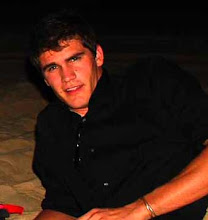Gentle Readers,
The Thursday of Thanksgiving I was all packed and ready to go camping. We we scheduled to leave at 2:45 so I headed out to get some lunch shortly before that. As I entered Deli Marche (one of the nicer establishments in the student center which serves freshly prepared stir fry with fresh ingredients) in the student center, I was ecstatic at what I saw; three massive roasted turkeys with chefs behind each one. Accompanying the turkey were sweet potatoes, mashed potatoes, gravy, stuffing, and apple pie. While I am highly appreciative, the staff at Deli Marche should stick to their Asian specialties. I will preface that the turkey was the best I've had in my life as it was very juicy, but the "gravy" they used was indeed stir fry sauce. The sweet potatoes while delicious, were cinnamon apple flavored, the stuffing was served cold, and the apple pie was... well, nothing beats a homemade apple pie. The meal, however foreign, left me in high spirits and a triptophan induced coma.
My friend Rajeev took Max and I camping in Fujairah for the night. It was a three hour drive to reach our destination. Upon arrival, it was dark which made things a little difficult to setup and we took a leap of faith hoping we were in a good spot somewhere between the town of Fujairah and the Omani border. We soon figured out the only thing in the tent bag was the tent; no stakes, poles, nothing; but have no fear, we did have tiki torches.

This presented us with some difficulties as we debated between being ingenuitive with the supplies available, or figuring out where we were going to sleep when that time came. That time indeed came and saw Rajeev sleeping in the backseat of the truck, Max zipping himself inside of the tent despite it being collapsed (something to do with a fear of crabs), and I slept right on the beach in a sleeping bag.
I awoke sweating profusely in the sleeping bag as the Arabian sun has no mercy even at 830 in the morning. Much of the day was spent lounging on the beach, taking advantage of our isolated location to get our mind off things.
Looking down the shore shortly after dawn:

Before making our way home, we packed up our site and drove a few miles down the road to do some more exploring. Max was determined to swim to an island before the end of the trip so we set out to do just that. The swim was a somewhat short jaunt out to a few rocky outcrops in the sea. There was nothing much to see in the ocean on the way out, though I nearly had a heart attack when I thought I saw a barracuda.
Max and I after reaching our island. Turns out he doesn't have the same affinity for swimming as he does for beaches, though all in all we had a good time.

Upon reaching the island though, we saw hundreds and thousands of fish in all shapes, sizes and colors. We did some skin diving for about an hour, amazing aquatic life. I took joy in diving down about 20 feet to depths and schools of fish under scuba divers nearby.
Looking back to shore from the island we swam to:

Going through my head; "I'm doing this for free, suckers..." Though there is an advantage for paying for all the gear as I sliced my leg and foot open pretty bad while maneuvering under some rock formations before rejoining Rajeev.
Nowhere in Sharjah or Dubai can you find good, fresh produce. But in the mountains in the MIDDLE OF NOWHERE... go figure...

Fishing commenced at our campsite.

Beach scenes to make you jealous

Coral hurts





